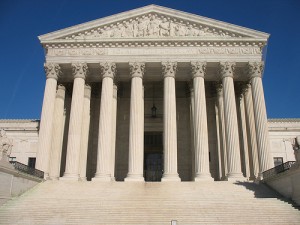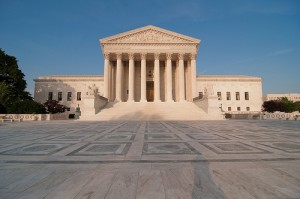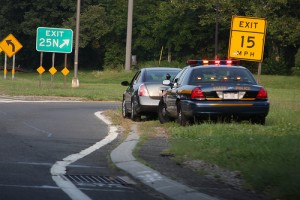Supreme Court Preview for Local Governments
Posted
26 Aug 2014 in Case Notes, Commentary
Even though the Supreme Court’s next term won’t officially begin until October 6, the Court has already accepted about 40 of the 70 or so cases it will decide in the upcoming months.
For a more detailed summary of all the cases the Court has accepted so far affecting local government, read the State and Local Legal Center’s Supreme Court Preview for Local Governments. Here is a quick highlight of what is on the Court’s docket right now that will affect local government:
Here is a quick highlight of what is on the Court’s docket right now that will affect local government:











